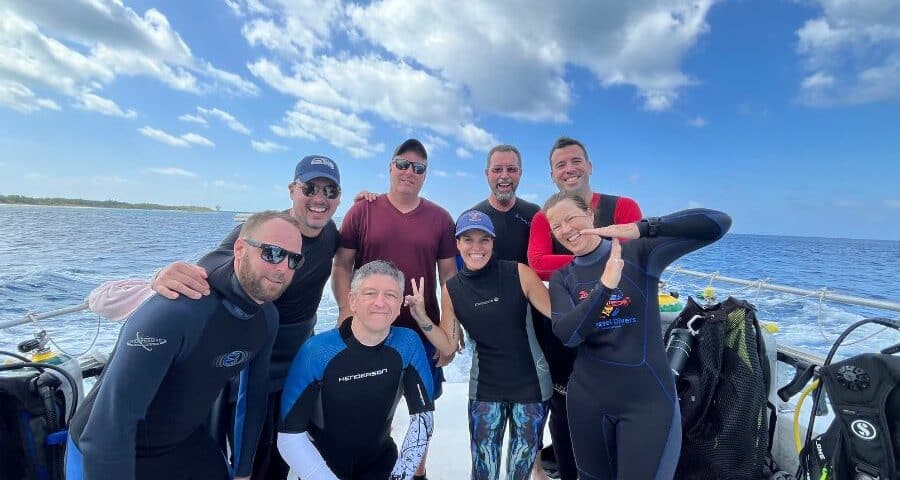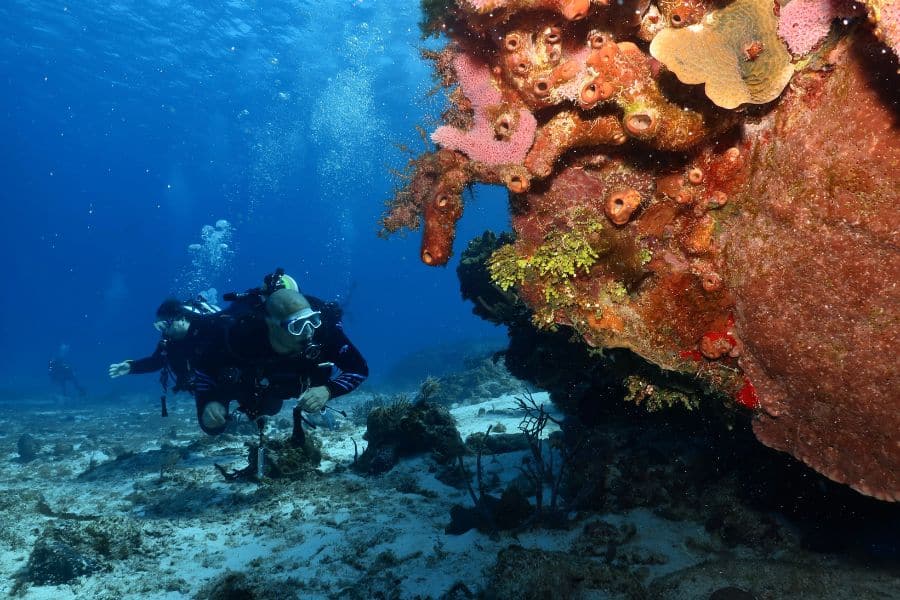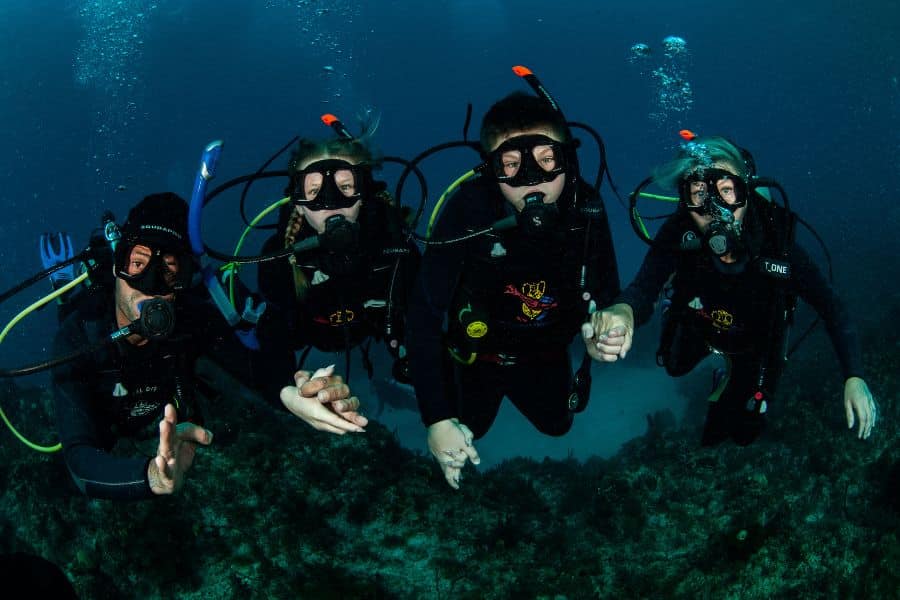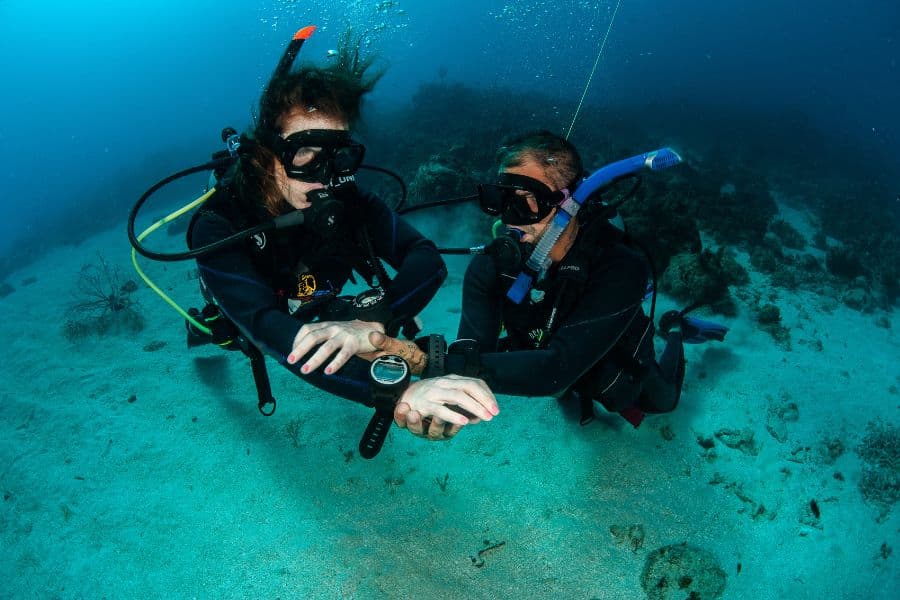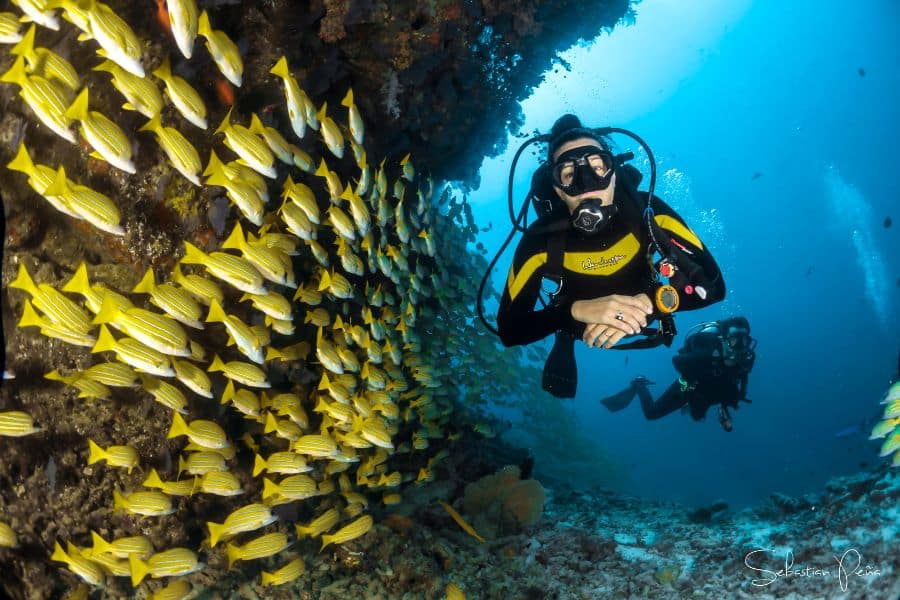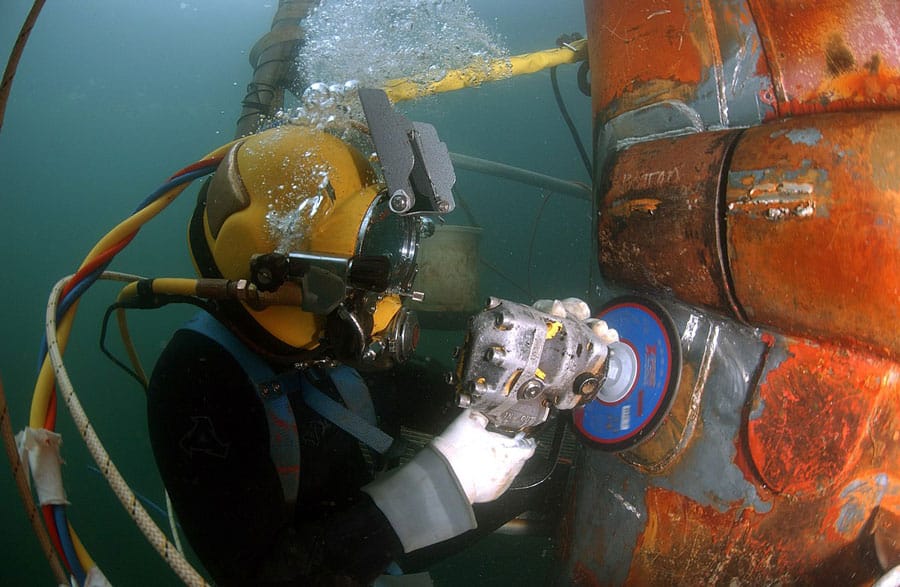─ Hey, Victor, how do you make a good diving plan?
Victor is our Human Resources director, he’s been a Dive Instructor for over 30 years, and a Course Director for 20. He’s a technical diver, and Instructor for technical and cave diving, with so many dives logged he’s lost count. So, if we’re going to tell you how to make a proper diving plan, we should ask those who know, right?
─ Do you need a real recreational diving plan or something fancy?
─ LOL! What do you mean by fancy?
─ It is common for many certified divers upon arrival at a dive center, to forget they are still responsible for caring for themselves and personally planning their dive, although within the parameters laid out by the dive center. Knowledge of dive planning will enable them to make informed decisions about the dive sites offered by the center, and how to stay coordinated with the others in the group and the guide.
If you want to add value for beginner divers reading this article, we should explain how they can optimize the diving planning process to make informed decisions and know what to expect.
Said and done. If you expect to read, in this article, the same as you were taught in the Open-Water course, it’s not for you, but if you want information on how diving planning is done nowadays and make informed decisions, take a look at the table of contents and keep reading.




